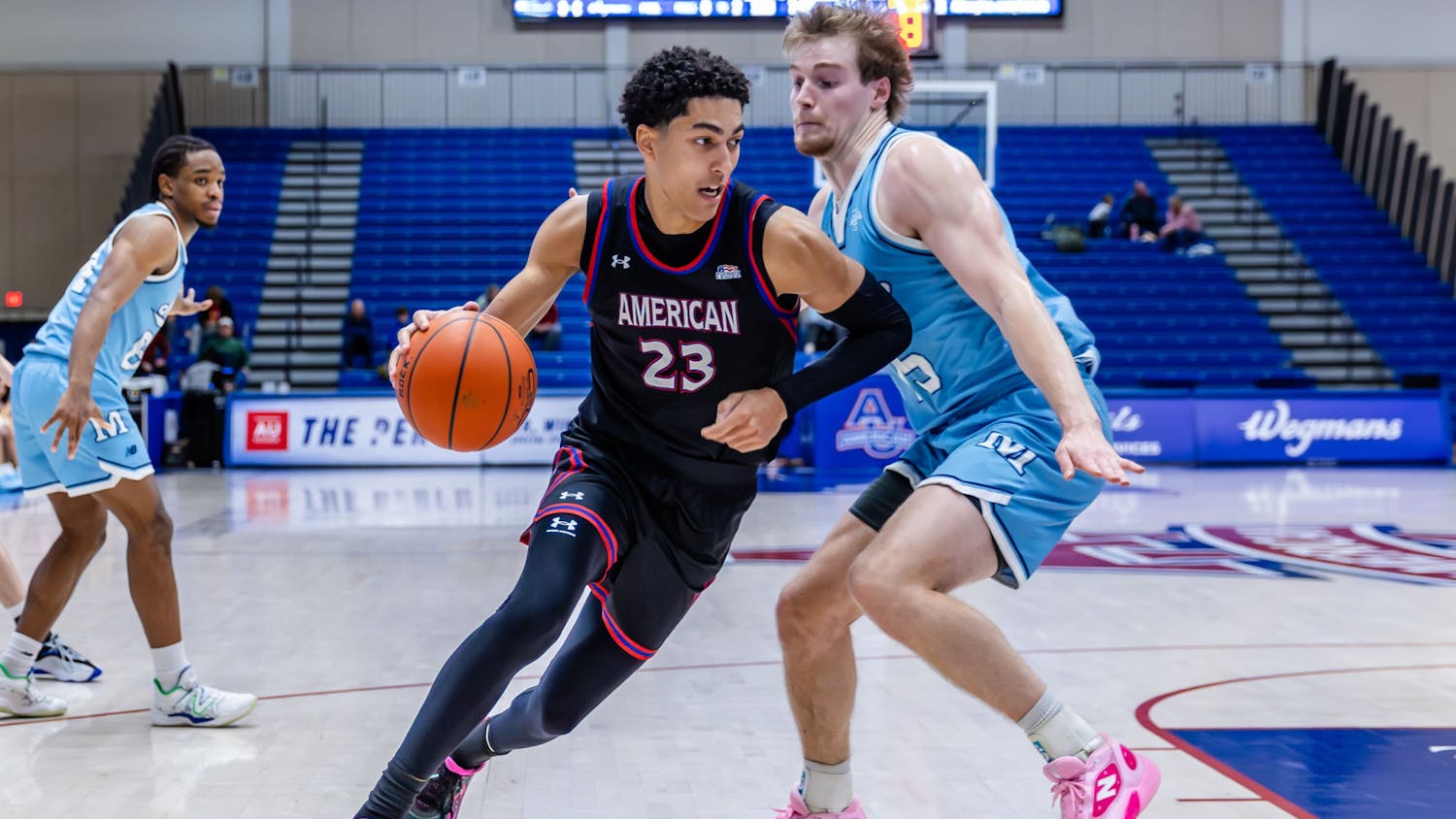If anyone can relate to the potential elimination of three AU teams after the spring of 2006, it's the swimmers of Dartmouth College.
Administrators at the Ivy League school announced the elimination the men's and women's teams two years ago as part of a two-year, $10.8 million budget cutback in November 2002. But athletes, students and alumni made their case in serious talks with officials, received national attention and got their teams back.
Dartmouth officials decided they would cut the 53-student swimming program for apparent financial reasons. The college's $2 billion endowment, which supplied a third of its costs, had slipped 6 percent due to slumping investments, so college officials planned a college-wide budget reduction. They considered making small cuts across the Athletic Department, but decided it would be better in the long run to eliminate the $212,000 swim teams, pointing to their 40-year-old pool as a hindrance to competitiveness.
Administrators ruled out using private donations to fund the team, which would divert money from the college's overall fund-raising campaign. It seemed to be the end of the road for the program, said Mia Yocco, a co-captain of the women's team that year who is now an assistant coach.
"It seemed like they (the administration) had their minds made up and were standing firm," she said. "Although in my mind, I couldn't conceive of the team not actually existing, so even though it seemed like a 'case closed,' there was always this idealistic hope in my mind."
This hope led to immediate backlash. The student government and alumni association passed resolutions urging administrators to reconsider the cuts. Hundreds of students rallied on campus and did a midnight protest in front of the school president's house. Their support was reaffirmed when more than 80 percent of the 2,000 students responding to a referendum voiced their opposition to the changes.
Swimmers set up a Web site to raise money, despite the administration's earlier stance on fund-raising. In December, one swimmer's friend put the teams up for auction on eBay as a joke. College officials didn't like it, and it only got six bids before being removed, but it gave the situation international attention. The story made newspapers from Seattle to Montreal and was mentioned on ESPN's "SportsCenter" and CNN.
With the nation suddenly taking note of the Dartmouth swimmers, student government officials met with administrators throughout the month. They prepared a 26-page report for a Dec. 9, 2002, meeting with rough proposals for alternatives, and eventually college officials became more receptive.
At the same time, alumni rallied as three swimmers from the 1950s spearheaded fund-raising efforts. After already getting donations from within and outside the campus community, they established a plan to raise a $2 million endowment.
The combination of fund-raising commitment and talks with the administration proved effective, and in early January 2003 college officials reversed their decision. With the new endowment the program could survive for another 10 years.
Student government officials later told The Dartmouth student newspaper that serious engagement with administrators, not the emotional demonstrations, overturned the cuts. They said the key factors were the Dec. 9 meeting in which they presented their report and the student referendum, which showed that interest in the teams wasn't just from a special-interest group.
Yocco also stressed the role of sincere efforts in fund raising and discussion with administrators in getting the job done.
"I think that the fund raising had a realistic impact, in that it could actually happen and that much money could be raised for Dartmouth," she said. "I think our talks with administrators let them see how much student-athletes really loved their sport"



